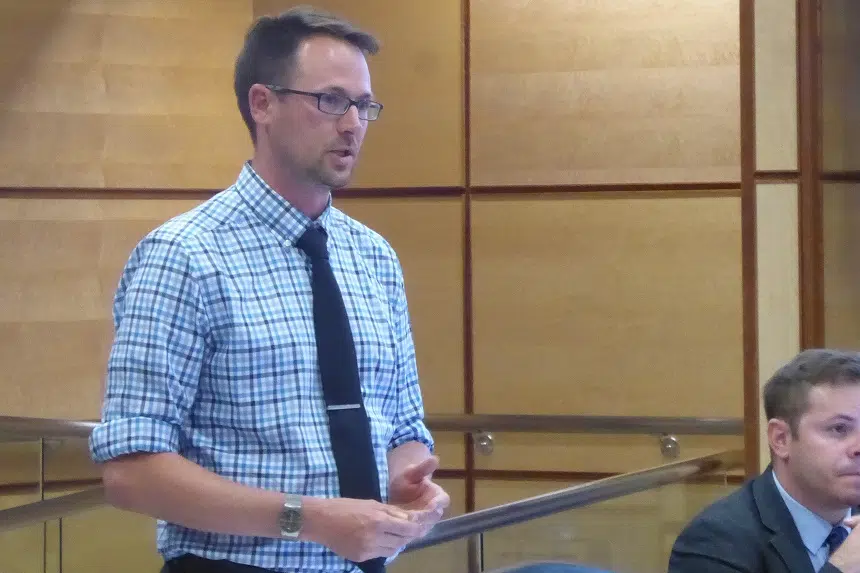A Regina city councillor is defending his idea to explore the possibility of decriminalizing the simple possession of drugs.
Andrew Stevens will bring forward a motion at the next Board of Police Commissioners meeting on Aug. 31.
He explained the city and the province are overwhelmed with addictions and overdoses and believes decriminalization would work as part of a broader harm reduction response, treating drugs as a health issue instead of a criminal matter.
“I think it really is an issue that demands a different approach. I think the whole war on drugs model has been an absolute failure,” said Stevens.
While decriminalization is not something that would happen overnight, the councillor believes the status quo is broken and we need a new way to prevent overdose deaths.
“You can’t just tell people to get their life in order. You can’t send them to prison and solve this stuff, so again, it’s a totally different approach,” said Stevens.
Stevens argues the country is already moving toward the harm reduction model. Last summer, the Public Prosecution Service of Canada issued a directive asking federal lawyers to avoid prosecuting simple drug possession cases unless there were major safety concerns.
Stevens also points to Vancouver, which has a long history with the harm reduction model and requested an exemption to allow for decriminalization of simple possession.
He admits Regina isn’t yet ready for decriminalization but wants to start the discussions and learn more about what services are needed to get the city to a point where it could be ready.
According to Stevens, to take harm reduction and safe consumption seriously, that would also include a deeper promise and commitment from the provincial government.
“Without a more systemic response, decriminalization isn’t going to do anything,” said Stevens.
Regina’s first safe consumption site opened in May but the Newo Yotina Friendship Centre can only operate until September as part of an exemption from the federal government.
Prairie Harm Reduction in Saskatoon was the first to open in Saskatchewan in October 2020. It applied for funding in the last two provincial budgets but was denied both times.
However, the province is providing both sites with drug testing strips to help detect dangerous additives like fentanyl and benzodiazepine. As of Aug. 3, fentanyl was connected to about two-thirds of the 73 confirmed overdose deaths in the province this year.
Another element of Stevens’ motion focuses on creating a safe drug supply. He wants to look into supplying drugs to users who are in need so they know it’s not tainted, thus leading to fewer deadly overdoses. Stevens understands this is the most contentious issue but says it’s an idea worth at least exploring.
He knows there will be people who aren’t in favour of his motion. Over the years, Stevens said he’s heard the argument that people don’t want their tax dollars going toward a safe drug supply.
“My response is, ‘Your tax dollars are already going towards that. It’s just an ineffective system currently and it’s leading to death,’ ” said Stevens.
To be successful, Stevens said this plan involves dialogue, expert opinion and advice and, ultimately, funding.
“Is it an uphill battle? Absolutely. We’re taking a very different approach to a complex issue, but no level of government can do it by itself,” said Stevens. “I’m hopeful that this then turns into a broader discussion and one of collaboration rather than antagonism toward this approach.”







